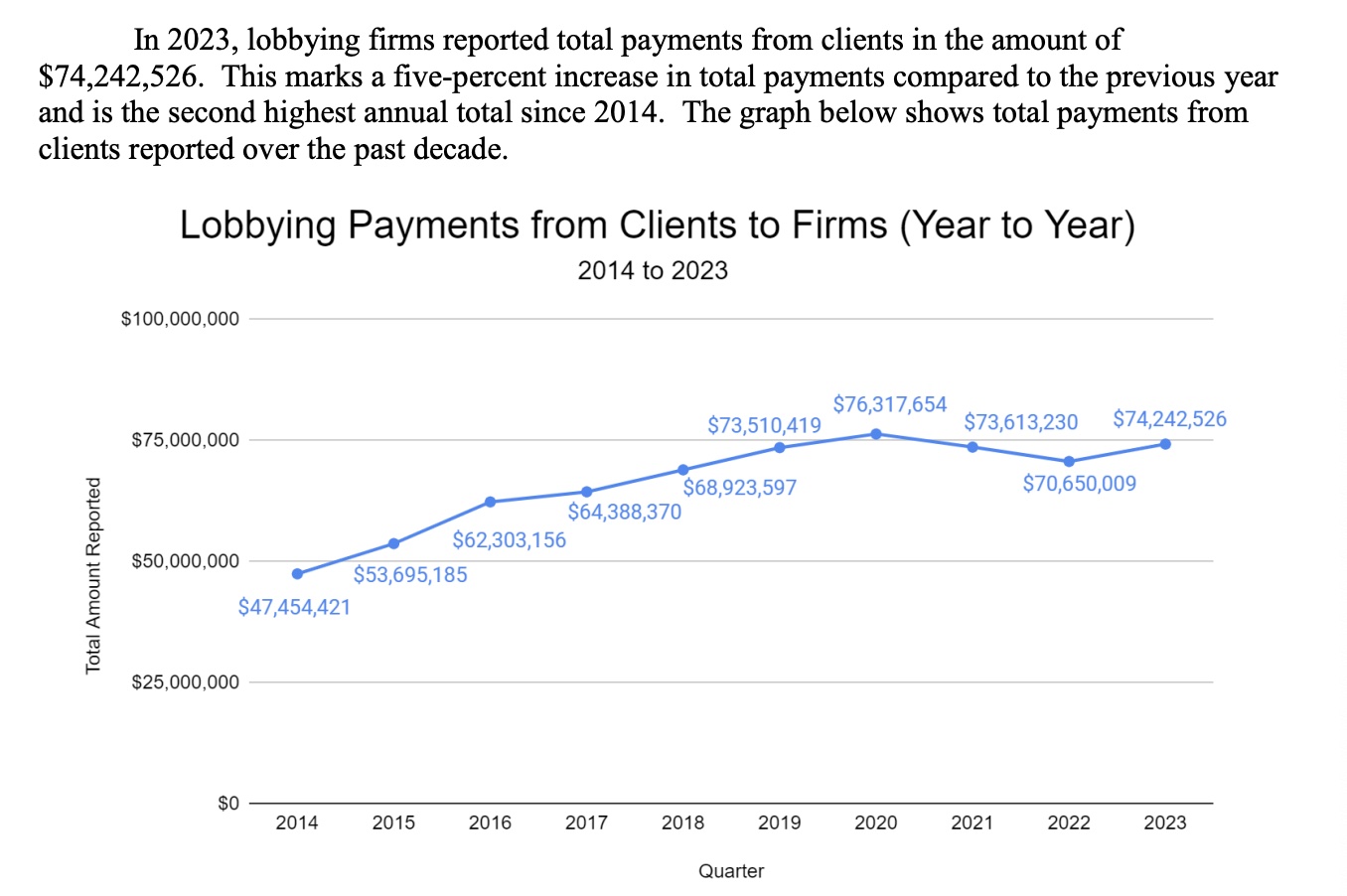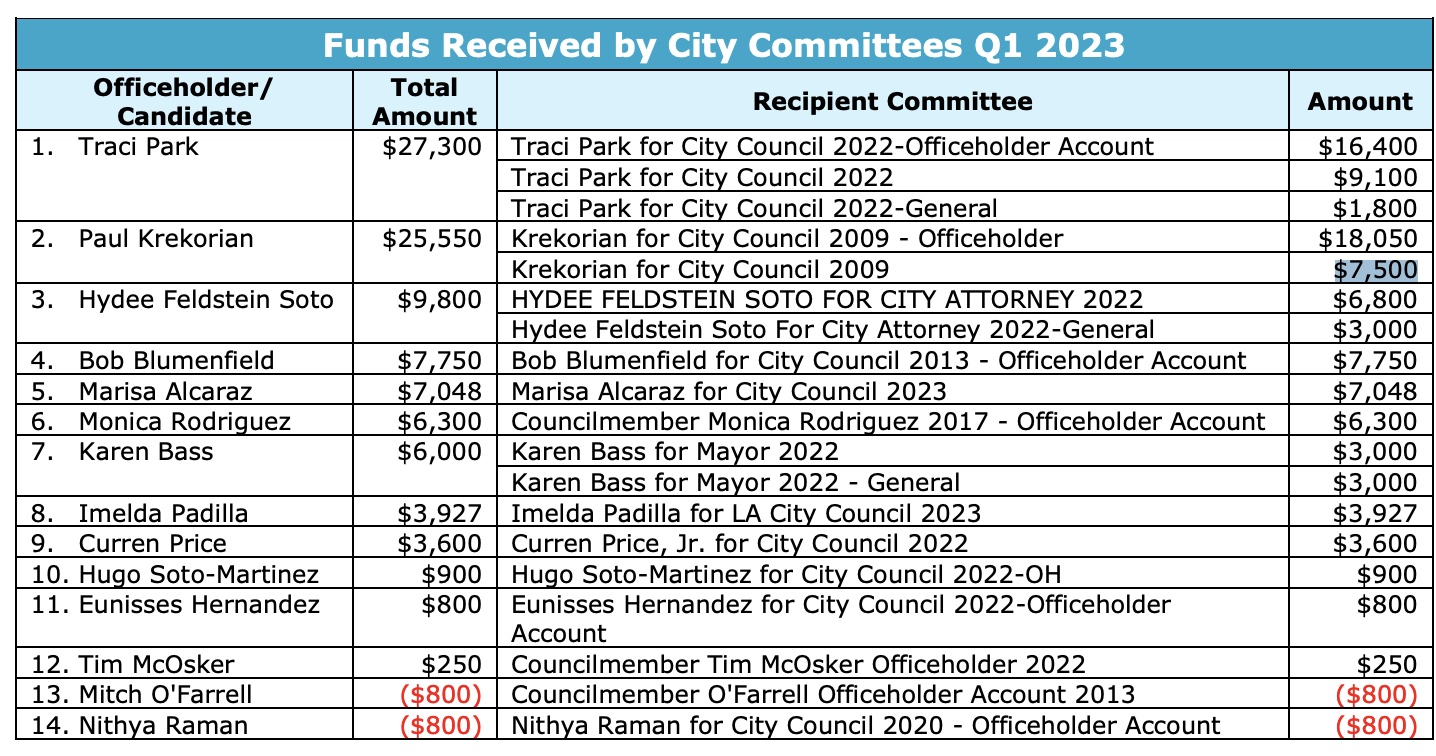Comments
ERIC PREVEN’S NOTEBOOK - In a world increasingly shaped by security concerns and celebrity culture, restaurants like Le Rock have turned discretion into an art form. As reported by The New York Times, Le Rock—frequented by Saturday Night Live cast members and power players—offers a maze of entrances and exits, including a staff-only rear door for VIPs wishing to avoid Rockefeller Center’s bustling front entrance. Drawing lessons from the ur-celebrity hot spot Catch, this design, as explained by Sarah Hawas, the restaurant’s events director, caters to privacy while maintaining an air of exclusivity.
The Los Angeles City Council chambers operate much like such a VIP haunt, where selective access reigns supreme. Getting a seat at the table might seem impossible, but there’s always a way in—if you know the right people. Enter Sergeant Duarte, the council’s unofficial maître d’, who controls the flow of access with practiced precision. Of course, even Duarte takes his cues from Council President Harris Dawson, whose nod can mean the difference between waiting in the wings and slipping discreetly into the inner sanctum. One can almost picture Council President Emeritus Paul Krekorian someday hosting tours of these exclusive passageways, showcasing the true art of selective access in Los Angeles politics.
Seating Closed: Open for business

Given AI and everything, why one wonders are the 2024 numbers not available? Great Question!
Elected officials face a two-year ban on influencing any City agency after leaving office. Yet, this lobbying holdback is easily bypassed with a large check for “services” — a loophole that City Attorney David Michaelson, aligned with the mayor, cooked up for Paul Krekorian. Meanwhile, now armed with a mega-budget for mega-events, Krekorian continues to navigate comfortably alongside the lobbyists, many of whom have been plying him with contributions over the years.
Now, he will operate as an "in-city lobbyist buddy," with no obligation to report his activities and a coded language forged over a decade on the dole. The regulated lobbyists who’ve bundled or delivered contributions for him still hold sway.
In 2023, lobbying firms reported total client payments of $74,242,526—a five percent increase from the previous year and the second-highest annual total since 2014. Yet the third-quarter 2023 numbers remain unavailable or at least elusive because the LA City Ethics Commission failed to achieve a quorum.
Notably, in 2023 Krekorian himself received $55,000 from lobbyists bundling or delivering contributions to his officeholder account. Here’s a sample:
- Kindel Gagan: $2,050
- Leon & Walsh Public Affairs: $5,600
- Afriat Consulting Group Inc.: $1,800
- Englander Knabe & Allen: $1,500, $1,500, $3,000
- Jeffrey McConnell (Englander Knabe & Allen): $1,500, $1,500
- Eric Rose: $750, $750
- Marcus Allen: $750, $750
- Arnie Berghoff: $4,100
The beneficiaries of the failure to meet due to quorum were the lobbyists who we can’t hold accountable with solid information.

Forever Young:
“May your hands always be busy / May your feet always be swift / May you have a strong foundation / When the winds of changes shift.” Bob Dylan, 1974
The Hunger-Waste Paradox: Call to Action
As the New Year approaches, Californians face a crucial deadline: starting in 2024, local governments will fine those failing to comply with SB 1383, the state’s composting law aimed at reducing landfill waste. While laudable, this effort barely scratches the surface of Los Angeles’s hunger-waste paradox.
In the U.S., 60 million tons of food are wasted annually, accounting for up to 40% of the food supply. During Thanksgiving alone, 316 million pounds are discarded. Meanwhile, in Los Angeles County, 25% of households—over 800,000 people—struggle with food insecurity. The result is a tragic contrast: food rots in landfills, releasing harmful methane, while families go hungry.
California’s composting mandate is a step forward but fails to address systemic inefficiencies that let waste coexist with hunger. Encouragingly, local initiatives like FoodCycle LA and Martie are bridging the gap, rescuing surplus food and turning imperfect produce into affordable groceries. Yet, more action is needed to close the loop.
Los Angeles must take bold steps by issuing an RFP inviting startups, nonprofits, and innovators to tackle food waste and hunger together. From AI-driven redistribution to scalable composting programs, creative solutions can make a lasting impact. Let’s commit to a New Year’s resolution for sustainability and equity: waste less, feed more, and ensure no Angeleno is left behind.
Low res Gaga inspiration.
Turbulence Ahead: A Safety Briefing from Plummet Airways
Good morning, fellow frequent fliers, and welcome aboard Plummet Airlines—where the skies aren't so friendly, and the back row has become the new first class for those keen on slightly improving their odds of survival.
Let’s start with a recent pro tip from a savvy family of Angelenos en route to the Orient: when faced with LAX gridlock, just abandon your car and walk the last mile to the terminal. Impressive? Sure. Impatient? Absolutely. But hey, when your TSA PreCheck and "premium lane access" still have you waiting for an eternity, you might as well hoof it. The real zeitgeist move, though? Skipping the ticket altogether. Delta just nabbed yet another stowaway trying to sneak to Hawaii, proving that sneaky passengers are the new "it" trend.
Not to be outdone, United Airlines raised the stakes by discovering a body in the wheel well of a Chicago-to-Honolulu flight. Let’s hear it for luxury travel!
Now, onto recent—and unsettling—news: two catastrophic crashes, one in Kazakhstan and another in Korea, have taught us a valuable lesson in seat selection. The survivors? All were seated in the bitter end of the plane, near the restrooms, clutching their “complimentary premium snacks.”
National Homelessness Crisis: Billions Spent, Little Gained
Homelessness is up a staggering 18% nationwide, with Los Angeles at the epicenter of a crisis that deepens despite billions in spending. The LA County Board of Supervisors, fresh off its seasonal “items binge,” now faces scrutiny with an awkward audit of Measure H tucked away under Board Correspondence. Meanwhile, City Hall boasts about "doubling" the number of people housed—a minuscule achievement spun as a "great savings" but more accurately a great spending.
Recent developments highlight the disconnect. In L.A. Alliance for Human Rights v. City of Los Angeles, the County committed $1.24 billion over four years to mental health beds, outreach teams, and care facilities. A federal monitor and expanded audits—now costing $620,000—add layers of oversight, but results remain elusive.
Measure A, approved in November 2024, replaces the expiring Measure H with a permanent half-cent sales tax projected to generate $1.076 billion annually starting April 2025. Yet questions linger: will this funding break the cycle of costly mediocrity or just pad bureaucracy?
When the Mayor claims 23,000 people have been "moved inside," one must ask—does that include tourists? With only 1,000 of 75,000 unhoused individuals transitioning indoors annually, the math doesn’t impress.
Instead of more oversight teams, the City Council should sick Monica Rodriguez and Traci Park on them to scrutinize the County's spending and demand results. Without sharper accountability, Los Angeles risks staying stuck in an expensive, ineffective loop, failing those who need help most.
Sir, you’re disrupting the vacation
Without an agenda to review, I came across a baffling 70-page audit of Measure H funds by BCA Watson Rice, LLP. The phrase “no exceptions noted” appears over 100 times, signaling a complete lack of substantive findings. Despite millions in taxpayer dollars at stake, the report offers nothing actionable, revealing, or remotely worth its cost—just a procedural checkbox disguised as oversight.
The timing is suspect, too. This audit, covering activities through June 2024, conveniently dropped just as Measure A seeks billions more from taxpayers. The public deserves better than what amounts to a rubber-stamped whitewash.
Supervisors, audits like this mean nothing when their scope is designed to avoid findings. How much was BCA Watson Rice paid for this ineffectual effort? And how does that compare to fees charged during the same period by firms like Covington & Burling, Miller Barondess, and Munger Tolles? Dawyn Harrison, county counsel, please consider this a PRA for all billings from these four firms.
Once we know the pricing, we can decide if we should hire BCA Watson again—you never know when we might need a top-tier whitewash for a reasonable price. Thank you, and great job finding absolutely nothing. Winky emoji.
Metro Potty not Peetee
With the San Fernando Valley gearing up for a transit boom—including light rail along Van Nuys Boulevard, a Sepulveda Pass line, and Orange Line upgrades—it’s clear that the Valley’s future is on the move. But here’s my question for Councilmember Nithya Raman and Mayor Bass’s soon-to-be Valley-picked Metro appointee: What are you doing about restrooms?
You can’t overhaul transit without addressing basic human needs. Leah Goodridge’s recent New York Times piece nailed the absurdity of cities ignoring public restroom infrastructure while penalizing people for having nowhere to go. If Los Angeles is serious about transforming transit and welcoming tourists for its endless megaevents, those tourists—and residents—will need more than glossy rail lines. They’ll need restrooms.
So, as Metro pushes deeper into the Valley, will your appointee ensure our transit hubs, parks, and public spaces have proper facilities? Or will we just keep pretending Starbucks and gas stations are an acceptable solution?
We hear a lot about bold transit visions, clean buses, and web-like rail systems. But if LA leadership can’t handle the basics, the rest is just window dressing.
Thank you—and may the Valley’s new Metro rep rise to this challenge.
Mr. President… are you just happy to see me!
Alright, back in the day, Jimmy Carter sat down with Playboy—yeah, Playboy—and had the nerve to just be honest. He admitted to some inner sparkle of temptation, and the world lost its mind. The guy was not groping at Bergdorfs, he was quoting scripture and being real.
And then Rosalyn brushed it off with, ‘Jimmy talks too much, but at least he answers questions.’ Honestly, where is that kind of energy now?
These days, many politicians slink around with lobbyists and pretend they are not being influenced by tens of thousands in bundled contributions from the same big companies begging for council favors. It’s like watching kids pretend they’re not avoiding chores, except it costs the rest of us millions.
Jimmy Carter’s so-called scandal wasn’t a scandal—it was a reminder that being a little too human is way better than being a lot too fake.
So here’s to Carter: the man who talked too much, answered everything, and never needed a lobbyist to tell him what he thought.
Yucking Oysters: A Health Crisis at the L.A. Times' 101 Best Restaurants Event
The L.A. Times' "101 Best Restaurants" party on December 3, 2024, became a health disaster, with over 80 attendees reportedly sickened by norovirus-contaminated oysters. The raw oysters, sourced from Fanny Bay Oysters via event sponsor Santa Monica Seafood, were served by a featured restaurant, including Providence—a Michelin two-star eatery ranked seventh on the Times' list. One attendee remarked, “[But] they were the ones shucking raw oysters. They were sitting out there wide open. I feel like that may have been it.”
For some, the event came with an added cost: one guest, who paid $600–$700 for VIP tickets, described falling ill and vowed never to return. While the Times confirmed the oysters’ origin and adherence to safety protocols, many attendees questioned how such an outbreak could occur at a curated event featuring high-profile restaurants.
The incident underscores the risks of serving raw seafood and casts a shadow over the L.A. Times’ handling of the fallout. With no response from Providence and limited acknowledgment from the organizers, this fiasco has left a bad taste—literally and figuratively—in the mouths of attendees.
(Eric Preven is a longtime community activist and is a contributor to CityWatch.)











